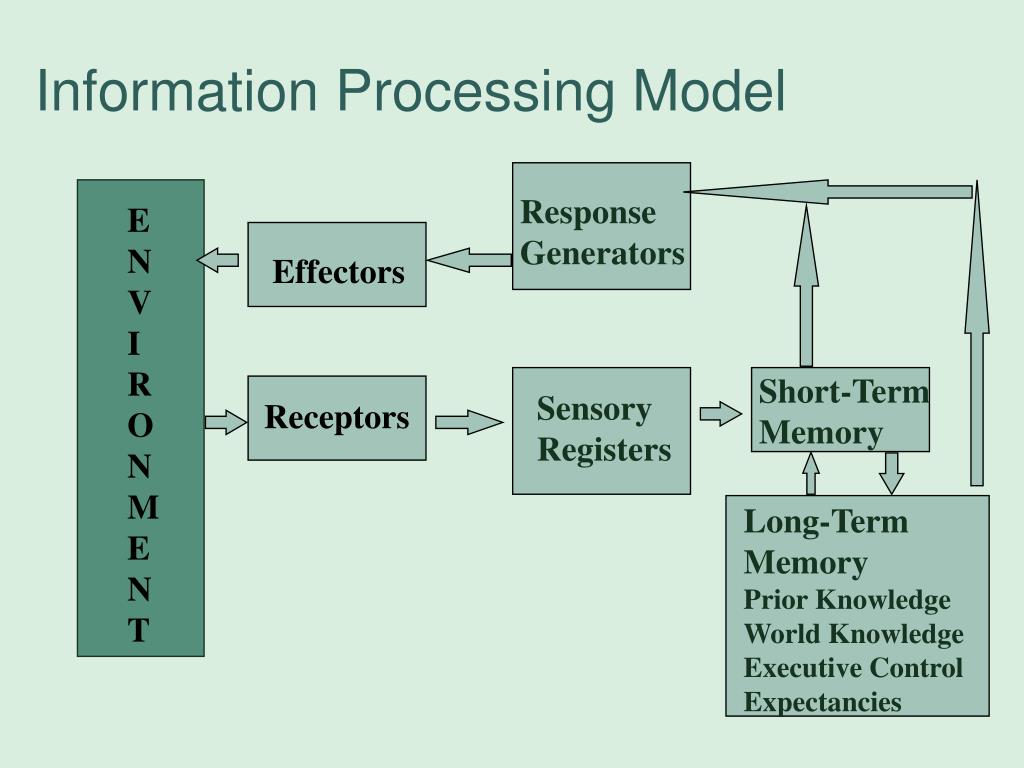

Include lesson time for repetition and review of information, present material in a very clear manner, and focus on the meaning of information. A theory is presented to account for the development of habitual aggressive behavior during early childhood.

(The information that caught one’s attention is selected for longer storage) Short term memory: Can hold unrehearsed information for about 20 30 seconds. Sensory:Retains information for only a fraction of a second but enough to select the portion of information that arrests one’s attention. An abstract model of an information system features four basic elements: processor, memory, receptor, and effector (Figure 1).
Information processing model series#
(Image to the right adapted from Cognitive Approach to Learning.) Information processing is a term which refers to the series of cognitive mechanisms that enable us to monitor, interpret, evaluate and respond to incoming. Incoming information (sensory input) pass through. In Bettman Information Processing Model, the consumer is portrayed as possessing a limited capacity for processing information. Information processors are components of an information system, which is a class of constructs. It declares that whatever mental processes act upon may best be described as information. In cognitive psychology, information processing is an approach to the goal of understanding human thinking. Make sure you have the students’ attention, and help students to make connections between new material and what they already know. The aim of the information-processing approach is to isolate the mental stages of processing, their relationships, functions and performance.
Information processing model how to#
So how to we avoid cognitive overload with students? If teachers prioritizing the information they give students, they help students to work our the critical elements of the information. Miller has provided two theoretical ideas that are fundamental to cognitive psychology and. semantic memories (concepts and general information)įor learning to occur, it's critical that information is transferred from the short term memory to the long term memory, because if we have more than seven pieces of information in our short term memory at one time, we get an overload (referred to as cognitive overload).Keywords Hybrid model 4 On-line information processing 4 Memory-based. In information processing theory, as the student takes in information, that information is first briefly stored as sensory storage then moved to the short term or working memory and then either forgotten or transferred to the long term memory, as: information processing models, this study presents a theoretical basis for the. Learning is what is happening when our brains recieve information, record it, mould it and store it. The information processing theory is based on the idea that humans actively process the information they receive from their senses, like a computer does.


 0 kommentar(er)
0 kommentar(er)
